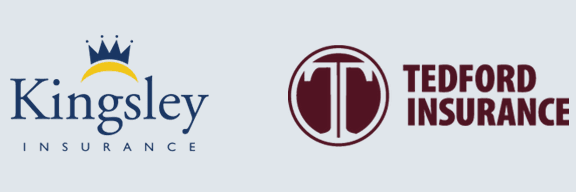Safeguarding Your Rental Properties: Essential Coverages for Landlords
KI
Safeguarding Your Rental Properties: Essential Coverages for Landlords
As a landlord, it's crucial to protect your rental properties from potential risks and liabilities. While being a landlord can be a rewarding venture, it also comes with its fair share of challenges. From property damage to legal disputes, there are various risks that can arise. That's why having the right insurance coverages is essential to safeguard your investment. In this blog post, we will discuss the essential coverages every landlord should consider.
1. Property Insurance
Property insurance is the foundation of any landlord's insurance portfolio. It provides coverage for the physical structure of your rental property, protecting it from perils such as fire, theft, vandalism, and natural disasters. Property insurance typically covers the building itself, as well as any fixtures, appliances, and furniture you provide as part of the rental agreement.

2. Liability Insurance
Liability insurance is another crucial coverage for landlords. It protects you from legal and financial consequences if a tenant or visitor is injured on your rental property. Liability insurance can cover medical expenses, legal fees, and even potential damages awarded in a lawsuit. Accidents can happen, so having liability insurance is essential for peace of mind.
3. Loss of Rental Income Insurance
Loss of rental income insurance is designed to protect landlords from financial losses when their rental property becomes uninhabitable due to covered perils. If your property suffers extensive damage and your tenants are forced to vacate, this coverage can provide you with the income you would have earned during the repair or rebuilding process.

4. Umbrella Insurance
Umbrella insurance is an additional liability coverage that goes above and beyond the limits of your primary liability policies. It provides extra protection in case you are faced with a large lawsuit that exceeds the limits of your underlying insurance. Umbrella insurance can be a valuable asset for landlords, offering an extra layer of protection for unforeseen circumstances.
5. Tenant Discrimination Insurance
Tenant discrimination insurance is an often overlooked coverage that can be vital for landlords. It protects you from claims of discrimination based on factors such as race, religion, gender, or disability. In the event of a lawsuit, this coverage can help cover legal fees and potential damages. It's important to treat all tenants fairly, but having tenant discrimination insurance can provide an added layer of protection.
6. Equipment Breakdown Insurance
Equipment breakdown insurance is particularly important if your rental property has expensive appliances, heating and cooling systems, or other machinery. This coverage can protect you from the costs associated with repairing or replacing damaged equipment due to mechanical breakdown, electrical short circuits, power surges, or operator error.
7. Flood Insurance
Floods can cause significant damage to properties, and standard property insurance policies typically do not cover flood-related losses. If your rental property is located in a flood-prone area, it's essential to consider purchasing flood insurance. This coverage can help protect your investment and provide financial assistance for repairs and rebuilding in the event of a flood.

8. Rent Guarantee Insurance
Rent guarantee insurance is a specialized coverage that protects landlords from the risk of unpaid rent. If your tenant fails to pay rent, this coverage can provide reimbursement for lost income. It can also cover legal expenses associated with evictions and tenant disputes. Rent guarantee insurance can be a valuable safeguard, especially in uncertain economic times.
By investing in these essential coverages, landlords can mitigate potential risks and protect their rental properties. Remember, each landlord's insurance needs may vary based on factors such as property type, location, and individual circumstances. Consult with an insurance professional to determine the right coverage options for your specific situation.
